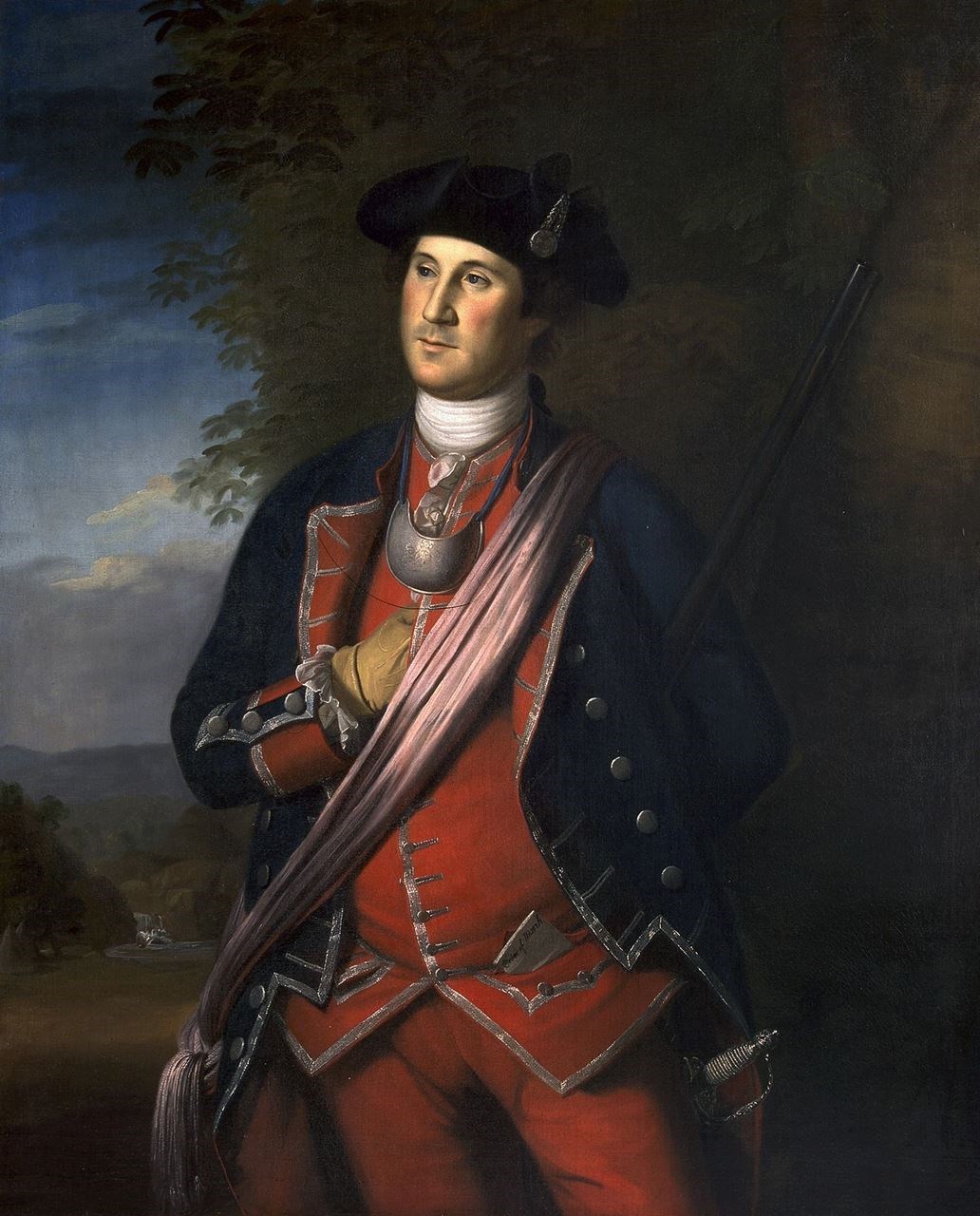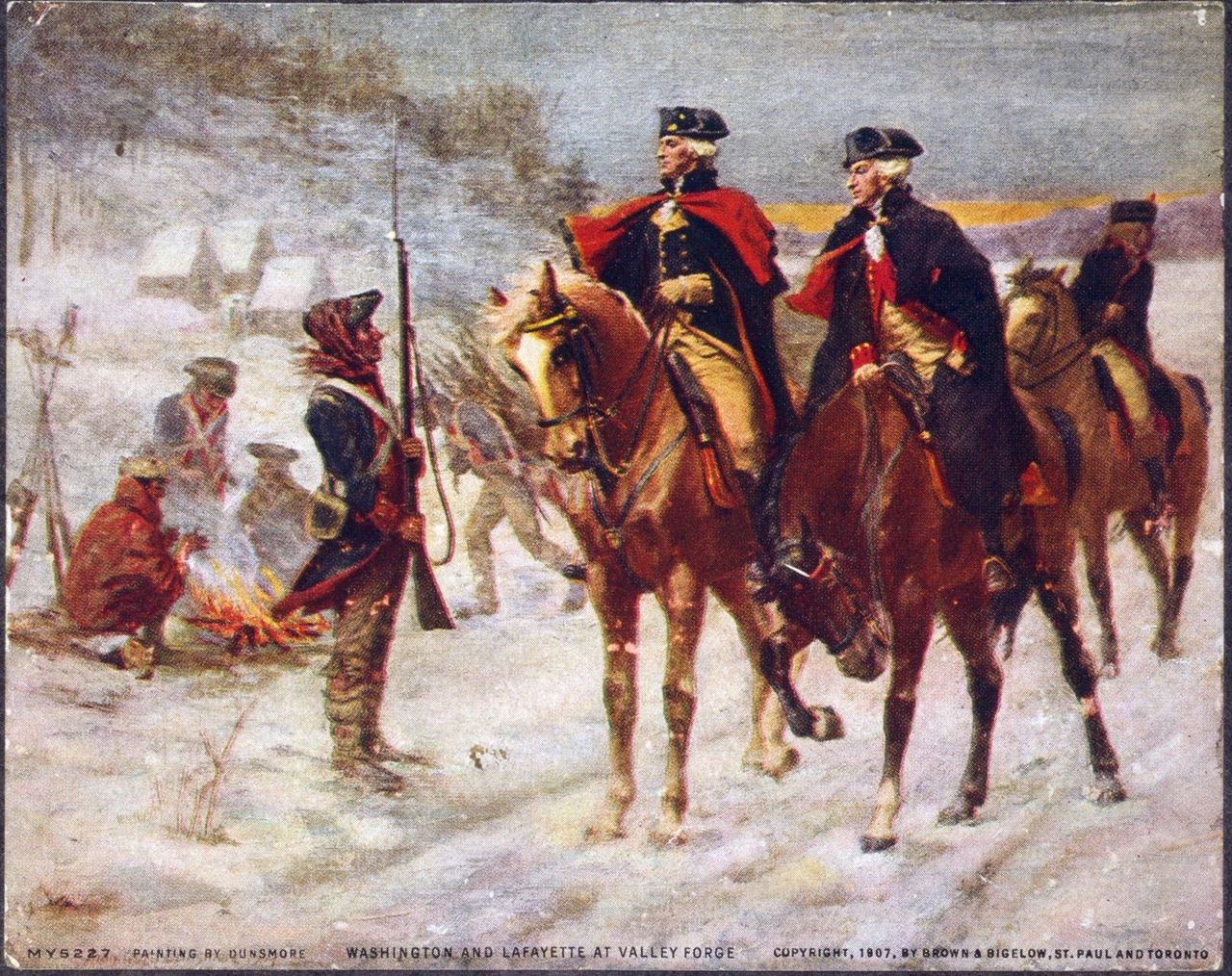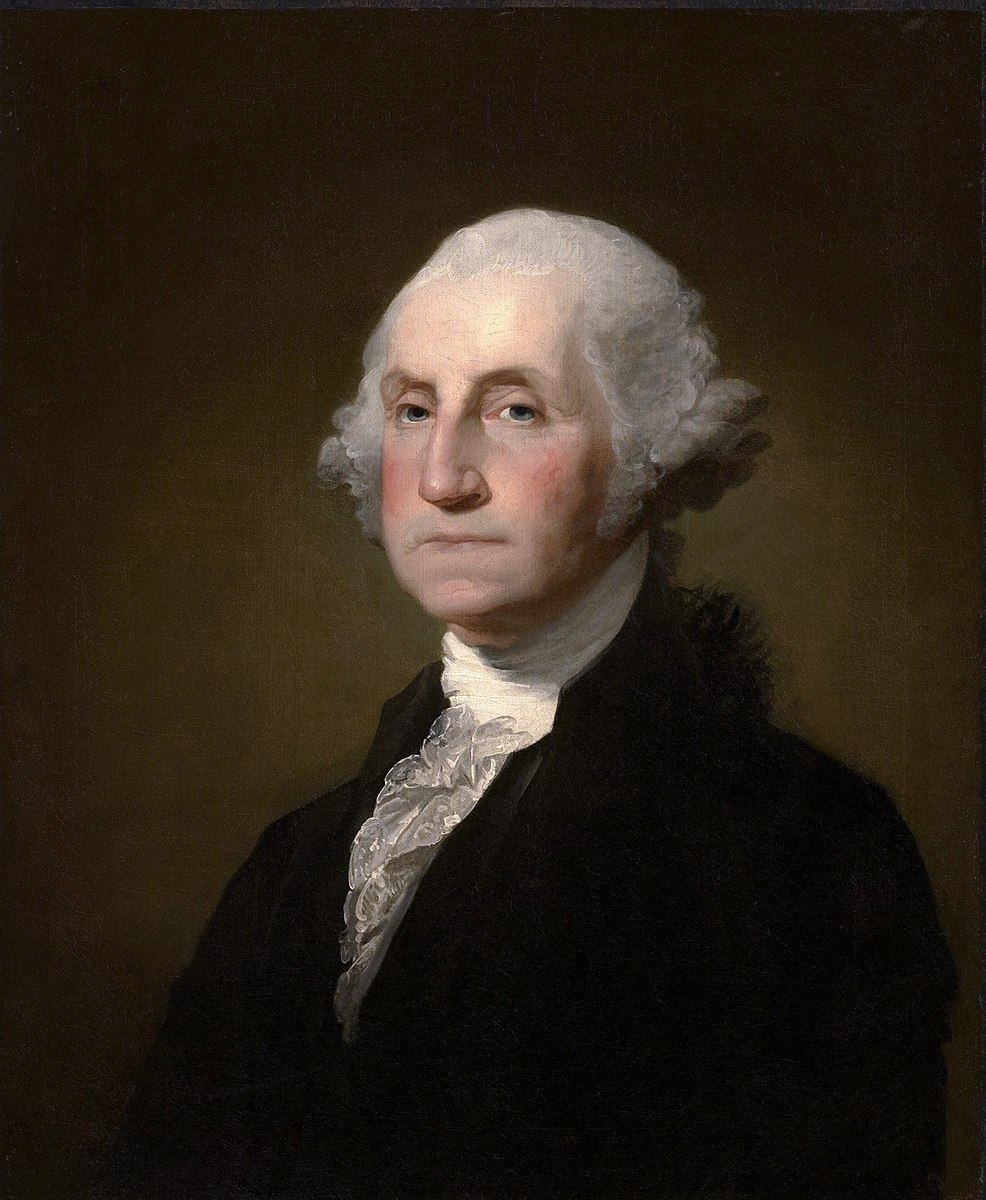Everyone has separate qualities, unique personalities, and different loves that were all inspired to be created through the actions and experiences that contribute to our lives, whether they occur during your childhood, at school, or maybe even as simple as when you read a book. But what defines all of these traits that now make up your personality that you recognize to be your inspiration? For me, it was my hero George Washington, the man who always stood at the front lines facing the opposing enemy, who fought for freedom and independence for a whole nation and later became one of America’s most beloved leaders in history. He is known as a selfless hero who always put his people and nation above himself by fighting for them with honor, bravery, and great leadership, all to accomplish his goals and everyone’s hopes for liberty and freedom. And even when he made mistakes, he never allowed them to subvert his goals. That is why I look up to him as my hero in my life, as he is my inspiration for the determination and moral goodness that he encompasses as a great leader, where someone will never hesitate to follow him. Because of this, he saw the example that he became, which gave him the objectives to make the right decisions for the benefit of everyone. These, in my opinion, are the true qualities of being a hero.
But to understand how Washington developed into becoming one of America’s greatest heroes, it is vital to understand who the people that affected his life were and what events resulted in his choices later on. Born on February 22, 1732 on Popes Creek Plantation in Virginia, George Washington had a simple life growing up with eight brothers and sisters. At the age of six, he and his family moved to Ferry Farm in Stafford County, Virginia. There, he gained his love for farming as well as years of education, which helped him to acquire his first job as a surveyor by the age of seventeen (White).
 Colonel George Washington, by Charles Willson Peale, 1772wikipediaWith this job, Washington gained a strong love for the outdoors and the simple countryside of his home, Virginia. Except soon he took on a different career to follow in the footsteps of his older half-brother, Lawrence, as a soldier in the British Army in 1753, where he would gain a first-hand experience of the reality of war and life on the battlefield. He witnessed his first victories and loses, such as with the major battle at Fort Necessity in Pennsylvania ("First Blood of the French and Indian War"). This was where Washington has his first-hand encounter with fighting and the only event in his military career where he surrendered to the enemy. These experiences gave him a new understanding on the ideas of war which he would take with him later in the American Revolution ("Washington and the French & Indian War"). Another harsh experience he encountered was the unfair treatment with his “fellow” British companions, as they demoted him from Lieutenant Colonel to a captain, while continuing to give him less pay than what a British captain would receive, all because he was a colonist.
Colonel George Washington, by Charles Willson Peale, 1772wikipediaWith this job, Washington gained a strong love for the outdoors and the simple countryside of his home, Virginia. Except soon he took on a different career to follow in the footsteps of his older half-brother, Lawrence, as a soldier in the British Army in 1753, where he would gain a first-hand experience of the reality of war and life on the battlefield. He witnessed his first victories and loses, such as with the major battle at Fort Necessity in Pennsylvania ("First Blood of the French and Indian War"). This was where Washington has his first-hand encounter with fighting and the only event in his military career where he surrendered to the enemy. These experiences gave him a new understanding on the ideas of war which he would take with him later in the American Revolution ("Washington and the French & Indian War"). Another harsh experience he encountered was the unfair treatment with his “fellow” British companions, as they demoted him from Lieutenant Colonel to a captain, while continuing to give him less pay than what a British captain would receive, all because he was a colonist.
The British’s treatment not only towards Washington, but also his fellow colonists, angered him greatly ("Washington and the French & Indian War"). So much, in fact, that he left the army, as he described in a letter to Colonel William Fitzhugh, saying, “I think, the disparity between the present offer of a Company, and my former Rank, too great to expect any real satisfaction or enjoyment in a Corps, where I once did, or thought I had a right to, command… in short, every Captain, bearing the King’s Commission; every half-pay Officer, or other, appearing with such commission, would rank before me… My inclinations are strongly bent to arms” (From George Washington to William Fitzhugh, 15 November 1754). Though he came back as a volunteer a few years later and continued on to fight in the French and Indian War, he found their treatment and actions had only gotten worse, so decided to finally retreat to his new home with his wife, Martha, to Mount Vernon in Virginia in 1759 ("Why Did George Washington Join the Revolution?").
As word began to spread throughout the colonies about small rebellions and uprisings against the British taxes and laws, Washington enjoyed his simple life in Mount Vernon. But news was spreading fast, and his patience was through with these recent events in the colonies under the British’s unfair and controlling rule. He had taken his part as much as possible to help with any of these issues by joining the Virginia House of Burgesses from 1758 to 1776. But soon everyone’s frustration had reached its highest point, knowing there was only a matter of time before war broke out against the British ("Why Did George Washington Join the Revolution?").
And war did come once Congress declared independence on July 4, 1776. Before this though, Congress knew they needed an army with a strong, intelligent, and willing leader to help guide and lead them to victory against the British. It was then, on June 14, 1775, that Washington was nominated by John Adams to become the Commander-in-Chief of the Continental armies. It was decided that only Washington was deemed worthy as well as ready to lead them to victory.
 Washington and Lafayette Valley ForgewikipediaThe war was one of Washington’s greatest victories in his life, as it proved that his skills and wise thinking had made him a natural-born leader, one that everyone relied on. He always showed his bravery in the face of battle, earning the reputation as “first in battle” where he always led his army, never standing behind ("Washington's Revolutionary War Battles"). His strategic thinking was put to the test as he continued to out-maneuver the British generals and their armies. One of his greatest tests and feats of accomplishment was at Valley Forge in December 1777 to January 1778. His men were suffering from the harsh winter, but he encouraged them to persevere and survive through discipline and sheer will. As he described his troubles through multiple letters during these hard times, we learned that “Washington hoped that his officers and soldiers, with ‘one heart’ and ‘one mind,’ would surmount the troubles that lay ahead of them'' (Valley Forge). Because of his concern and devotion towards not only this event, but every battle fought, every challenged faced, and all of the troubles that arose, he was able to overcome these obstacles throughout the war and finally win independence for America.
Washington and Lafayette Valley ForgewikipediaThe war was one of Washington’s greatest victories in his life, as it proved that his skills and wise thinking had made him a natural-born leader, one that everyone relied on. He always showed his bravery in the face of battle, earning the reputation as “first in battle” where he always led his army, never standing behind ("Washington's Revolutionary War Battles"). His strategic thinking was put to the test as he continued to out-maneuver the British generals and their armies. One of his greatest tests and feats of accomplishment was at Valley Forge in December 1777 to January 1778. His men were suffering from the harsh winter, but he encouraged them to persevere and survive through discipline and sheer will. As he described his troubles through multiple letters during these hard times, we learned that “Washington hoped that his officers and soldiers, with ‘one heart’ and ‘one mind,’ would surmount the troubles that lay ahead of them'' (Valley Forge). Because of his concern and devotion towards not only this event, but every battle fought, every challenged faced, and all of the troubles that arose, he was able to overcome these obstacles throughout the war and finally win independence for America.
Because of his heroic actions during the war, the people of the United States loved him and all looked up to him as their greatest hero. They saw him as a true and modest man who was able to defeat the impossible. Such an example was seen when he resigned from his position as commander-in-chief in 1783. He did not want a military to dictate over the people, but instead have its citizens control it, indicating his core beliefs, which were to transform this new government into creating a more just nation ("Ten Facts About George Washington and the Revolutionary War").
 Gilbert Stuart Williamstown Portrait of George WashingtonwikipediaThough he wished to finally retire, he was requested again by Congress in 1789 where he was unanimously nominated to become the first President of the United States of America. There was much concern, though, if Washington was willing to accept the presidential office since at the age of 57, he was ready to retire back to Mount Vernon. He knew it was a daunting task to take, becoming this new yet also struggling country coming from a war, and much conflict involving the newly created government system. But he knew it was his duty and was willing to take the challenge to help prevent the nation from falling after he helped to gain its freedom ("George Washington: The Reluctant President").
Gilbert Stuart Williamstown Portrait of George WashingtonwikipediaThough he wished to finally retire, he was requested again by Congress in 1789 where he was unanimously nominated to become the first President of the United States of America. There was much concern, though, if Washington was willing to accept the presidential office since at the age of 57, he was ready to retire back to Mount Vernon. He knew it was a daunting task to take, becoming this new yet also struggling country coming from a war, and much conflict involving the newly created government system. But he knew it was his duty and was willing to take the challenge to help prevent the nation from falling after he helped to gain its freedom ("George Washington: The Reluctant President").
He served for two terms as president with much success, as he helped to establish the new government by creating a presidential cabinet and a National Bank as a way to settle the nation’s economy. His was able to stabilize the government and continue to settle multiple challenges such as Shays Rebellion before finally retiring to Mount Vernon, living there until he died on December 14, 1799 (Graff). His death was a devastating loss not only for his people, but also for other nations around the world where the British royal navy raised their flags at half mast and Napoleon Bonaparte ordering a week of mourning for the former president (Araho). He created a legacy that has lived on for centuries, and everyone has continued to look up to him as the hero who created their beloved nation. The devotion for his country and its people along with the sacrifices he made is how I define him as a hero. His accomplishments in his life helped those around him to follow in his footsteps and look to his guidance, the choices he made based on his beliefs behind the ideas of creating a new and better nation, and the contributions he made so generations could keep on living in a life of freedom and happiness that he had fought for as my hero.
Works Cited Page
Araho. “When George Washington Passed Away Napoleon Bonaparte Gave a Eulogy.” Alearned, 14 Jan. 2015, http://www.alearned.com/george-washington/.
“From George Washington to William Fitzhugh, 15 November 1754,” Founders Online, National Archives, accessed September 29, 2019, https://founders.archives.gov/documents/Washington/02-01-02-0114. [Original source: The Papers of George Washington, Colonial Series, vol. 1, 7 July 1748 – 14 August 1755, ed. W. W. Abbot. Charlottesville: University Press of Virginia, 1983, pp. 225–227.]
“First Blood of the French and Indian War.” History.com, A&E Television Networks, 9 Feb. 2010, https://www.history.com/this-day-in-history/first-blood-of-the-french-and-indian-war.
“George Washington: The Reluctant President.” Smithsonian.com, Smithsonian Institution, 1 Feb. 2011, https://www.smithsonianmag.com/history/george-washington-the-reluctant-president-49492/.
Graff, Henry, and Allan Nevins. “Presidency.” Encyclopædia Britannica, Encyclopædia Britannica, Inc., 21 Oct. 2019, https://www.britannica.com/biography/George-Washington/Presidency.
“Ten Facts About George Washington and the Revolutionary War.” George Washington's Mount Vernon, https://www.mountvernon.org/george-washington/the-revolutionary-war/ten-facts-about-the-revolutionary-war/.
“Valley Forge.” George Washington's Mount Vernon, https://www.mountvernon.org/library/digitalhistory/digital-encyclopedia/article/valley-forge/#note2.
“Washington and the French & Indian War.” George Washington's Mount Vernon, https://www.mountvernon.org/george-washington/french-indian-war/washington-and-the-french-indian-war/.
“Washington's Revolutionary War Battles.” George Washington's Mount Vernon, https://www.mountvernon.org/george-washington/the-revolutionary-war/washingtons-revolutionary-war-battles/.
White, Gwendolyn K. “Ferry Farm.” George Washington's Mount Vernon, https://www.mountvernon.org/library/digitalhistory/digital-encyclopedia/article/ferry-farm/.
“Why Did George Washington Join the Revolution?” George Washington's Mount Vernon, https://www.mountvernon.org/george-washington/the-revolutionary-war/why-did-george-washington-join-the-revolution/
Page created on 1/28/2020 8:03:08 PM
Last edited 1/12/2025 5:27:16 PM
